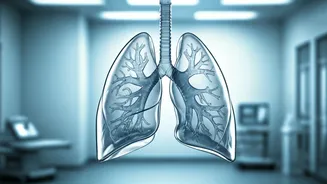Weakened Immunity
Breathing polluted air regularly is like inviting trouble for your immune system. It hinders the body's natural defense mechanisms. This can leave you more
susceptible to common ailments such as colds, the flu, and various respiratory diseases. The constant assault from air pollutants diminishes the body’s ability to ward off infections, making you vulnerable to illness. For instance, frequent exposure to poor air quality can weaken your body's ability to fight off viruses and bacteria, increasing the frequency and severity of respiratory infections. It's like your body's security guard is constantly being distracted, leaving you exposed to threats.
Cognitive Decline Issues
Long-term exposure to polluted air has been linked to concerning impacts on cognitive function. Studies suggest a direct correlation between inhaling polluted air and reduced cognitive abilities. This can lead to issues with memory and focus. The risk of developing neurodegenerative conditions, such as Alzheimer’s and dementia, also increases. This exposure can accelerate cognitive decline, impairing mental sharpness. The implications of this are significant, highlighting the need to address air quality to protect brain health. Protecting the air is important for maintaining mental clarity and preventing cognitive decline later in life.
Risks for Vulnerable
Certain groups are at increased risk from the effects of air pollution. Children and pregnant women are particularly vulnerable. Developing lungs and brains are especially susceptible to the harmful effects of air pollutants. During pregnancy, exposure to polluted air can lead to serious issues, including low birth weight and various developmental problems. For children, the developing respiratory system is highly sensitive to irritants in the air, increasing the risk of respiratory illnesses. It is crucial to be aware of the ways in which air pollution harms the most vulnerable members of society.
Respiratory Problems Arise
One of the most immediate effects of air pollution is on the respiratory system. Polluted air irritates the respiratory tract, leading to various issues. People often experience coughing, wheezing, and shortness of breath. Asthma and bronchitis symptoms may worsen. Prolonged exposure can result in a permanent reduction in lung function. Breathing polluted air constantly damages the delicate tissues of the lungs. The long-term effects can include chronic respiratory diseases and reduced overall lung capacity. It is important to be aware of how pollution threatens respiratory health.
Skin Damage from Air
Air pollution takes a toll on the skin as well. Pollutants can clog pores and break down collagen, the key structural protein in the skin. This can lead to premature aging. The skin can appear dull and inflamed, and related conditions like eczema or acne may worsen. The constant exposure to pollutants can accelerate the aging process. The skin's natural defenses are weakened, making it more prone to damage and inflammation. To maintain healthy skin, protect yourself from polluted air.
Heart Disease Risks
Fine particulate matter (PM2.5) in polluted air poses significant risks to cardiovascular health. When inhaled, these tiny particles can enter the bloodstream. This increases the likelihood of several heart-related problems. High blood pressure, heart attacks, and other cardiovascular conditions become more probable. The heart works harder, increasing the strain on the cardiovascular system. People with pre-existing heart conditions are particularly vulnerable. It is vital to consider how air pollution increases heart disease risks.













